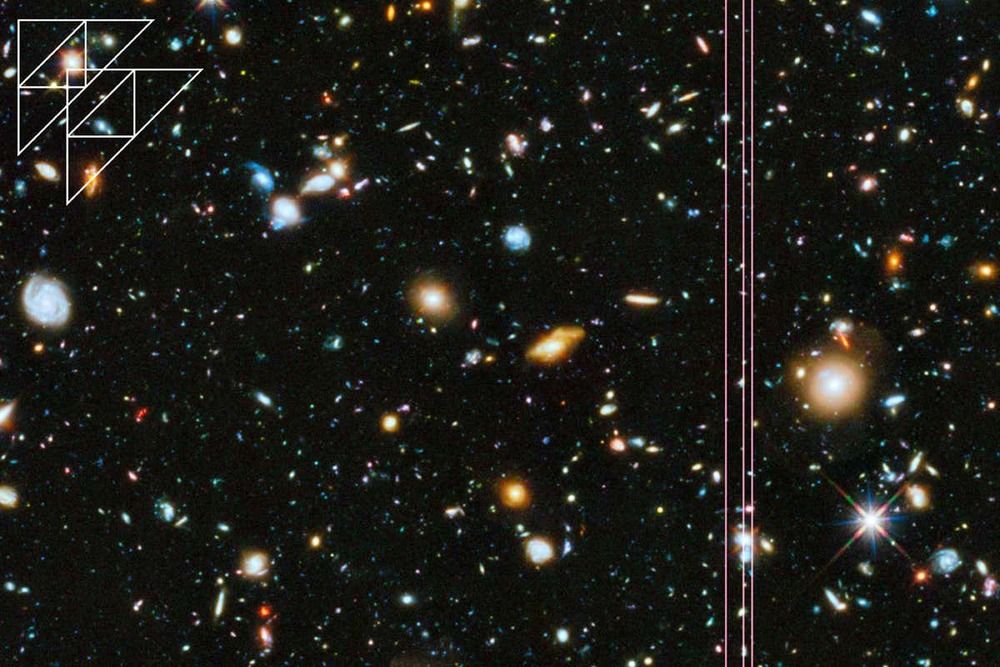It actually makes more sense that all the foundational physics laws do not exist but somehow they do. That is why I still believe there is some governing force that controls the parameters possibly. It makes more sense that our universe somehow was not created than it all somehow just magically sustained itself. That is why I think aliens created the universe as a containment possibly or that the laws of physics somehow are not completely know of how they all work together. Some talk about super symmetry but still seems some sorta things are still not know and we may never know until the theory of everything can be created.
Our best theories predict that all the matter in the universe should have been destroyed as soon as it existed. So how comes there’s something, not nothing?
By Daniel Cossins
Mystery: Why does anything exist at all?
THERE is plenty to recommend the standard model, our best description of particles and their interactions. But it has the odd awkward lapse. “It is a somewhat embarrassing fact that it fails to explain our existence,” says Werner Rodejohann at the Max Planck Institute for Nuclear Physics in Germany.

In regard to
“It makes more sense that our universe somehow was not created than it all somehow just magically sustained itself…”
if you mean by sustained itself that something came from nothing, I agree. But, the question “Why does anything exist at all?”, even if it applies to the aliens that created our universe, is still there. My view is that asking this question is similar to asking how we start with 0 (e.g., “nothing”) and end up with a 1 (e.g., “something”)? Because 0 doesn’t equal 1, the only possible way to do this is if the 0 really isn’t a 0 but is a 1 in disguise. That is, somehow what we’ve always considered to be “nothing” is somehow, if thought of differently, a “something”.
How can “nothing” be seen as a “something”? To answer this, I think we first have to answer why does any “normal” thing, like a book, exist? That is, why is a book a “something”? I think that a thing exists if it is a grouping. Groupings unite things together into a single unit whole and define what is contained within the whole. This grouping together is visually seen and physically present as a surface, or boundary, that defines what is contained within and that gives “substance” and existence to the thing. Some examples are 1.) the definition of what elements are contained within a set groups those previously individual elements together into a new unit whole called the set, which is visualized as the curly braces surrounding the set and 2.) the grouping together of previously unrelated paper and ink atoms into a new unit whole called a book, which can be visually seen as the surface of the book.
Next, in regard to the question “Why is there something rather than nothing?”, when we get rid of all existent entities including matter, energy, space/volume, time, abstract concepts, laws or constructs of physics and math as well as minds to consider this supposed lack of all, we think what is left is the lack of all existent entities, or “absolute nothing” (here, I don’t mean our mind’s conception of this supposed “absolute nothing”, I mean the supposed “absolute nothing” itself, in which all minds would be gone). This situation is very hard to visualize because the mind is trying to imagine a situation in which it doesn’t exist. But, once everything, including the mind, is gone, this situation, this “absolute lack-of-all”, would be it; it would be the everything. It would be the entirety, or whole amount, of all that is present. By its very nature, it defines exactly all that is present (e.g., nothing). Is there anything else besides that “absolute nothing”? No. It is “nothing”, and it is the all. An entirety, whole amount or “the all” is a grouping that defines what is contained within (e.g., everything), which means that the situation we previously considered to be “absolute nothing” is itself an existent entity. Said another way, by its very nature, “absolute nothing”/”the all” is a grouping. It defines itself and is therefore the beginning point in the chain of being able to define existent entities in terms of other existent entities. Overall, I think that “something” is necessary because even what we previously considered to be “nothing” is a “something”.
Thanks for listening!